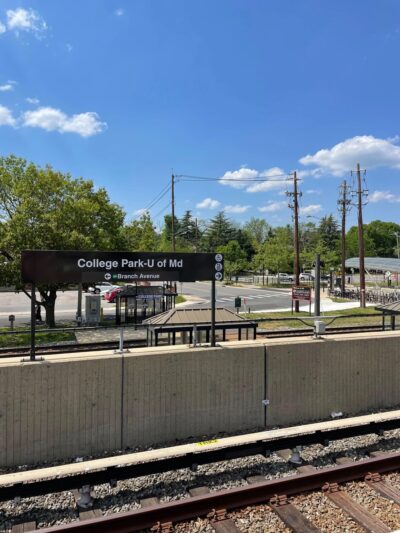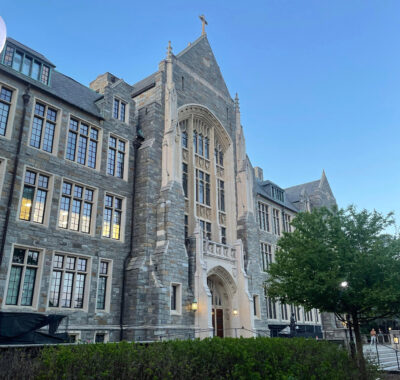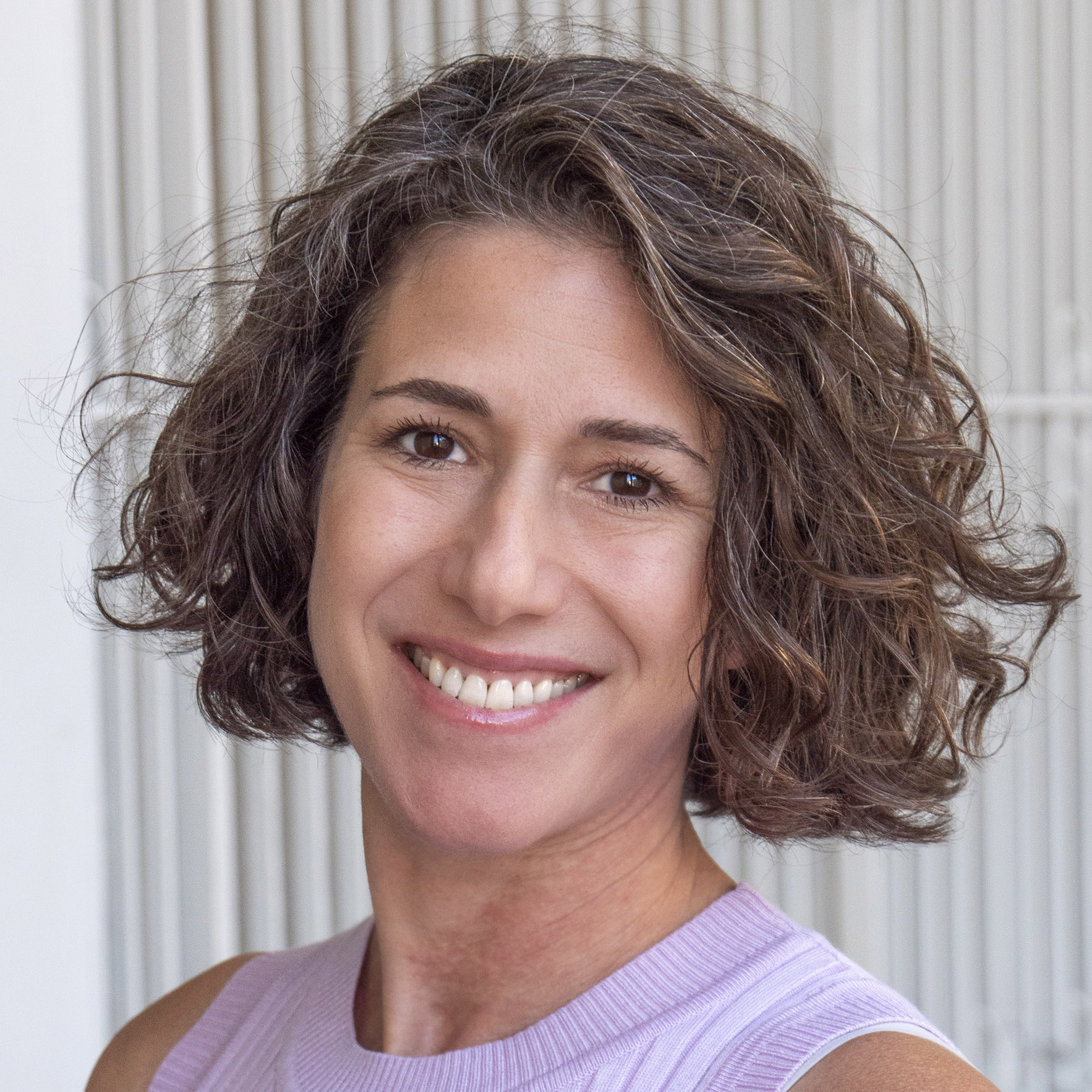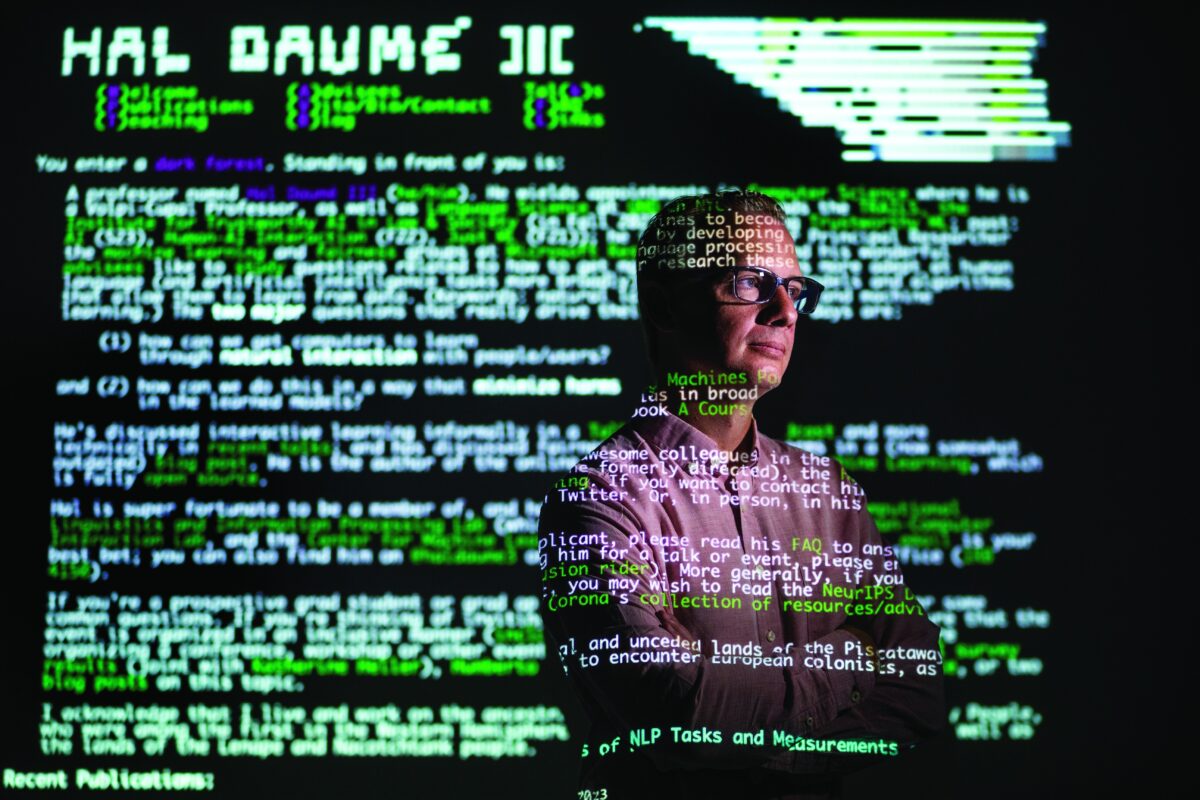The college is launching the Artificial Intelligence Interdisciplinary Institute at Maryland (AIM) with a focus on what it calls “ethical AI development,” UMD announced last week. The institute will be interdisciplinary, focused on research and education.
Hal Daumé, a computer science professor at UMD and now the institute’s inaugural director, began crafting the proposal for AIM last summer. Daumé also leads the Institute for Trustworthy AI in Law & Society (TRAILS), a partnership with UMD, George Washington University and Morgan State University, focused on analyzing and researching AI systems.
“This opportunity came along to really build something bigger,” Daumé said. “It seemed like such a big opportunity to really do something that has a big impact. Certainly within the university, but hopefully, at least, within the Maryland, DMV area.”
UMD has been implementing AI in different ways over the years, one example being developing tiny drones that could one day provide support to pollinators, like honey bees. This launch also quickly follows Maryland Gov. Wes Moore’s executive order, issued in January, calling for “responsible and productive use” of AI at state agencies.
AI education for people both inside and outside the university
One of the plans of AIM is to develop a bachelor of arts and bachelor of science degrees focused on AI, Daumé said. Both need to be state approved, which has not yet happened. It’s likely that the bachelor of arts will be released first, which could be as soon as this fall, then the bachelor of science a year later, he said.
Daumé’s goal is to release general education courses about AI in the fall. He’s teaching one right now, covering generative AI.
The main question he and his students are tackling: “What are the different ways that we can think about human values? And then what does that mean in the context of building AI systems?”
He recalled when algorithmic tools were used to determine health services under Medicaid in Arkansas in 2016. As a result, Legal Aid of Arkansas led a lawsuit against the state after receiving multiple complaints of radically readjusted care, or that care was cut. The court ultimately ruled the state had insufficiently implemented the plan.
“That’s something that they shouldn’t have had to go through, right?” Daumé said. “We need to start thinking about — not just AI as a technology that we’re developing in some vacuum that doesn’t affect people. And we really need to think about its impact on people in society.”
There will also be AI certificates and workforce development programs available for people outside of the UMD student body. There are plans for a new space on campus to house the institute, and about 40 faculty hires are planned, Daumé said. It’ll all be funded through the university, research grants, philanthropic gifts and industry partnerships. UMD outlined that there will be financial support for AI research, but those numbers have not been disclosed.
Neda Atanasoski, a professor and chair of the Harriet Tubman Department of Women, Gender and Sexuality Studies at UMD, will be associate director of education at AIM. Sheena Erete, an associate professor at UMD and researcher who focuses on socio-cultural technologies, will serve as associate director of research.
Daumé envisions the two degrees as parallel tracks. The bachelor of arts will hone in on the humanities and sociology sides of AI, while the bachelor of science degree will focus on the math and algorithms side.
He’s excited to be able to build these degrees “from scratch,” mainly because he can work on making it accessible to students, no matter their educational background.
“I see this as a huge opportunity,” Daumé said, “to have these, I hope, high impact degree programs that are really open to potentially any student.”
Join the conversation!
Find news, events, jobs and people who share your interests on Technical.ly's open community Slack

DC daily roundup: Auxa Health's seed raise and Nasdaq shoutout; the $500M Tech Hubs race; TikTok ban's impact on the marginalized

DC daily roundup: Bowie State's tech transformation; Social data driving change; Ex-Foxtrot workers file suit

DC daily roundup: Appian's new AI tools; Foxtrot stores abruptly shutter; Sublime Security raises $20M



